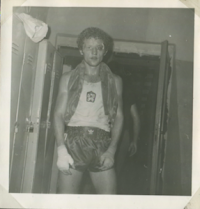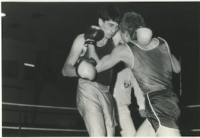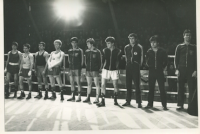Boxer Tibor Puha - a medalist whose joy from sport was ruined by the ban to travel to the Olympics

Download image
Tibor Puha was born on October 18, 1958, in Nový Jičín, Moravia. His parents moved with him to the village of Horné Mýto, Dunajská Streda district. He grew up there and enrolled in boxing at the age of 14. He also trained in Dunajská Streda and Galanta. His role model was the legendary Ján Zachara. In 1977 he went to war, to the military department of Dukla Olomouc, where he started a professional career as a boxer. Between 1981 and 1987, he managed to win the title of Czechoslovak champion up to six times. He participated in the World Championship in Munich in 1982. A year later, he experienced the greatest success of his career, when he won a bronze medal at the European Championships in Varna, Bulgaria. When the communist government banned athletes from travelling to the Los Angeles Olympics in 1984, he resigned from the national team. He ended his boxing career in 1987.




























